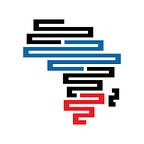CfA joins AI partnership to drive inclusive policies
Teaming up with the Partnership on AI global community to ensure high-quality public discourse online
Code for Africa (CfA) has partnered with the Partnership on AI (PAI) to contribute towards creating a more responsible and healthy media ecosystem. It has become a truism that algorithms often perpetuate discrimination, injustice and historical bias, a process termed the algorithmic colonisation of Africa by researchers like Abeba Birhane. This means that minorities are often left out of the decision-making, as are entire swathes of people, groupings and entities that are outside the often limited ambit of Western companies and institutions responsible. A one-size-fits-all approach is imposed, whereas solutions are often required to be unique to a specific demographic or region.
As CfA’s CEO Justin Arenstein points out, “Context matters. Machine learning is reshaping the way that authorities make decisions, impacting millions of lives. It also shapes how human rights defenders fight online hate and abuse, and even what is considered to be truth. But, in Africa, many of these decisions are based on data and algorithms that have no relevance to our reality. This new coalition will help change this.”
“Any widely deployed AI solutions to misinformation and other forms of problematic online content must be attentive to different regional information contexts,” said Claire Leibowicz, program lead at the Partnership on AI. “Code for Africa’s on-the-ground experience and expertise will help ensure that technology is created responsibly and equitably, greatly enriching the PAI community along the way.”
CfA is especially interested in PAI’s goal of “mitigating misleading and harmful content online, and helping define what content we should bolster, and how”. Code for Africa shares the goal of other global partners, to “use AI techniques to ensure high-quality public discourse online”.
As CfA wrote in a piece in South Africa’s Daily Maverick in 2019, algorithms and AI already play a major factor in society — from Spotify recommendations through to insurance risk and credit scores, but the bias baked into the software often leaves out the global South, and specifically Africa.
“It’s a bias that perpetuates injustice, and also prompts a sense of fatalism — the view that we are powerless to do anything other than what we actually do in this AI-powered world,” wrote CfA’s then CTO David Lemayian. “Gender, race, tribe, and even location can result in a whole community not receiving benefits and then keep them at a disadvantage.”
Another major role AI plays in our daily lives is recommending news content. A 2020 research report from the German Marshall Fund Digital found that sites spreading known misinformation saw a major increase in engagement on their content on Facebook — the “content roughly tripled from the third quarter of 2016 to the third quarter of 2020, the group found.”
A recent report that Code for Africa co-authored with the Global Disinformation Index measured 35 sites in South Africa on a scale of least-to-most risk for publishing misinformation. One of the research elements focused on newsroom policies, which included regulations around AI-generated content. Not one of the 35 sites surveyed had this policy in place. It is a safe estimate that very few, if any, newsrooms on the rest of the continent have these policies, which leaves news media and audiences at risk of manipulation.
There are many possible interventions that serve to facilitate building and creating policies that disproportionately affect and impact these groups, including checks and balances for bias, and expanding the table to include partners from the global South. Code for Africa is proud to be a part of the AI and Media Integrity Program, actively working to change AI for the better, sharing in the goal of combating those threats to public discourse that go hand in hand with the development of AI and, as PAI writes, helping to “ensure that peoples’ online interactions are grounded in truth.”
___________________
The Partnership on AI is the leading forum addressing the most important and difficult decisions on the future of AI. It is a non-profit that invites diverse voices into the process of technical governance, design, and deployment of AI technologies. PAI works with Partners across industry, academia, and civil society to understand the implications of AI advancements and ensure they benefit society equitably. Through dialogue, insight, education, and guidance, PAI informs responsible AI solutions and identifies opportunities to address humanity’s pressing challenges.
Code for Africa (CfA) is the continent’s largest network of civic technology and data journalism labs, with teams in 12 countries. CfA builds digital democracy solutions that give citizens unfettered access to actionable information that empowers them to make informed decisions, and that strengthens civic engagement for improved public governance and accountability. This includes building infrastructure like the continent’s largest open data portals at openAFRICA and sourceAFRICA, as well as incubating initiatives as diverse as the africanDRONE network, the PesaCheck fact-checking initiative and the sensors.AFRICA air quality sensor network.
CfA also manages that African Network of Centres for Investigative Reporting (ANCIR), which gives the continent’s best muckraking newsrooms the best possible forensic forensic data tools, digital security and whistleblower encryption to help improve their ability to tackle crooked politicians, organised crime and predatory big business. CfA also runs one of Africa’s largest skills development initiatives for digital journalists, and seed funds cross-border collaboration.
